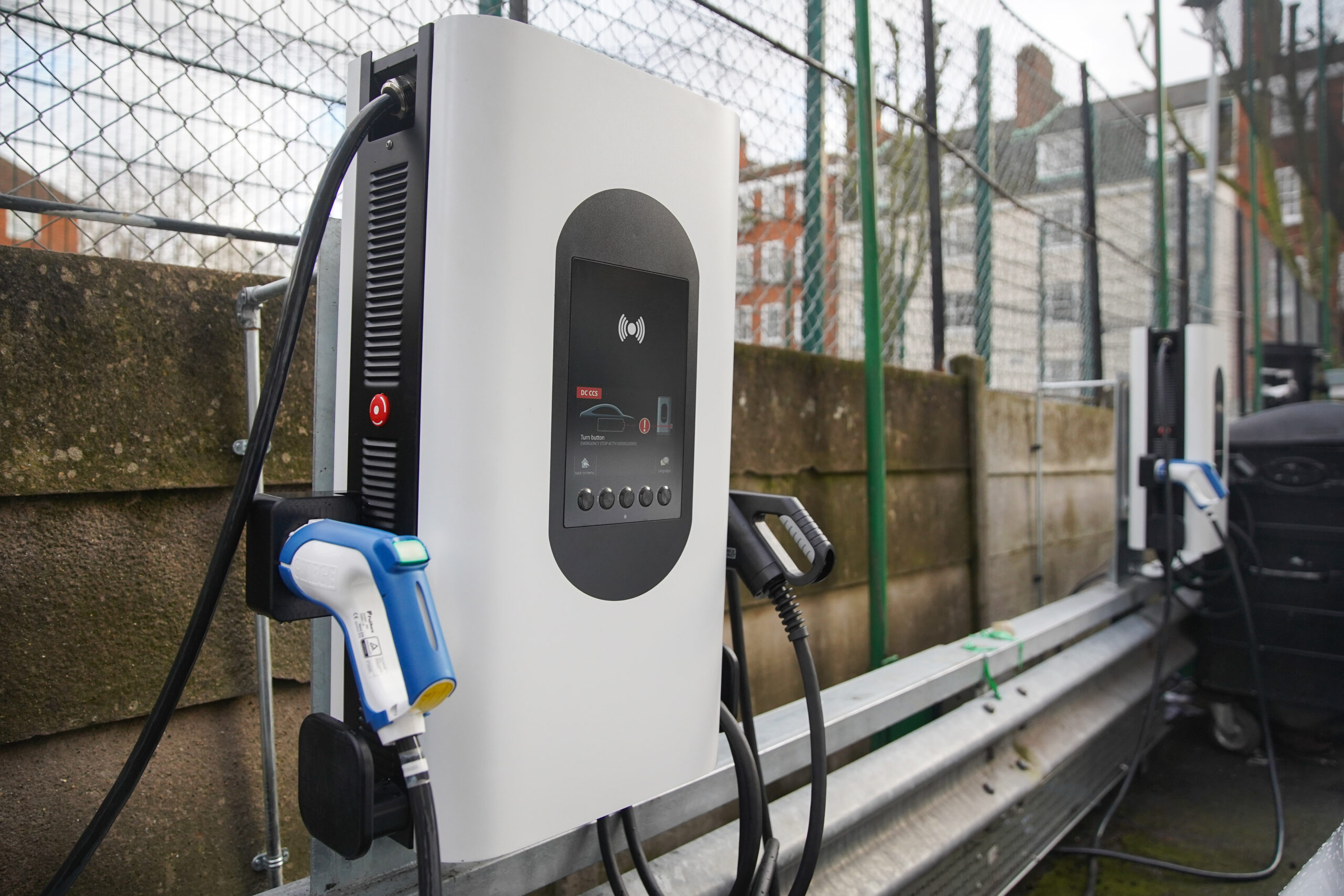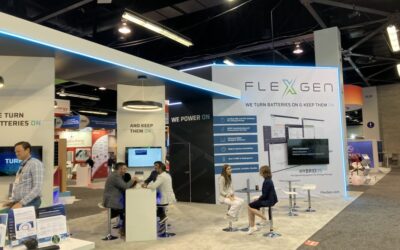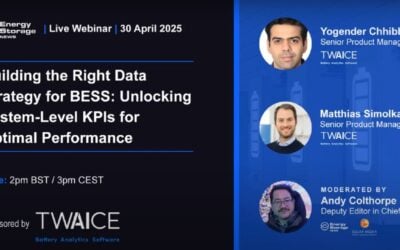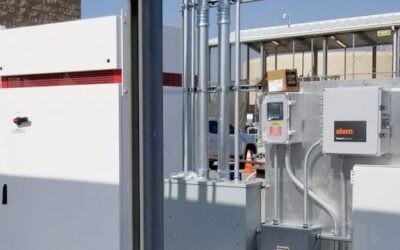
UK based energy storage company Moixa, together with automotive giant Honda, have launched a vehicle-to-grid (V2G) project at one of London’s famous Town Halls that will help to provide constraint management for the building, as well as facilitate a switch to electric vehicles.
They have installed five bidirectional V2G chargers at Islington Town Hall, North London, which can charge the council’s new Nissan e-NV200 electric vans.
Enjoy 12 months of exclusive analysis
- Regular insight and analysis of the industry’s biggest developments
- In-depth interviews with the industry’s leading figures
- Annual digital subscription to the PV Tech Power journal
- Discounts on Solar Media’s portfolio of events, in-person and virtual
The chargers were made by Swiss company EVTEC, and jointly developed with Honda. They have both Combined Charging System (CCS) and CHAdeMO connections, as while CCS remains dominant in the UK, Honda suggested at the event that CHAdeMO is starting to take over in Europe. As such, they are designed to be interoperable and forward thinking.
They have been installed with Moixa’s GridShare software, which will allow the vehicles to work as storage for the council building. They will be able to charge when electricity is cheap and green, usually at night when there is a large amount of wind and nuclear on the grid and a low level of demand.
In other settings, Gridshare has been widely used by Moixa to aggregate the capabilities and capacities of the company’s own residential battery storage systems, with Moixa among the first in Britain to prove that distributed devices can help balance the grid.
Additionally, as seen in Japan through the company’s partnership with domestic manufacturer Itochu, Moixa is moving to a licensing model whereby third part batteries from other providers can also be connected, controlled and monitored through the GridShare platform.
This can then be discharged as and when it is needed back into the council buildings system. This can help balance the council’s electricity system which can at times be stretched, especially when there are music concerts taking place at the onsite venue.
Events within this space have been known to trip the electrics in the town hall, leading Moixa’s chief technology officer Chris Wright to quip that the chargers can be seen as “vehicle to party”.
The council has a net zero target of 2030, and a fleet of nearly 500 vehicles it is now transitioning from ICE to help meet this goal.
In a launch event at the building yesterday (16 January), Councillor Rowena Champion, Islington Council’s executive member for environment and transport, welcomed the project saying:
“Decarbonisation of our own fleet is absolutely imperative, to climate change, but also to air quality. This project is very much part of that, but it’s also much more.
“Smart charging allows power to withdraw from vehicles to be utilised where it’s needed most. Crucially, it allows us to make use of the greenest energy available, with the benefit that brings.”
Flexitricity is helping to provide the demand response services for the project, and say they are “delighted” to be involved in the innovative project.
The company’s chief strategy officer and founder Alastair Martin said: “There is huge value in flexibility and Flexitricity’s job is to make sure all types of energy users have access to it – from large commercial and industrial energy users down to every EV customer.
“It’s very exciting to see how partnerships like this one are moving us closer to our vision of a greener and fairer energy system. The initial tests went very smoothly and the operators in our 24/7 control room in Edinburgh are poised and ready to dispatch the flexibility from the EV fleet to help National Grid balance the system, driving revenue and savings for Islington Council in the process.”
The chargers will operate within the Town Hall’s capacity limits, and received approval from UKPN prior to their construction. Moixa is currently in talks with UKPN about providing further constraint management services in the future to other parties.
The chargers in Islington Town Hall have a capacity of up to 10kW each, while the building has a baseload of 50kW and a total site capacity of 250kW.
It is hoped that the chargers will be able to increase energy security, lower costs and provide environmental benefits for the council. When the entire fleet has transitioned to electric, it will cut 1,400 tonnes of carbon dioxide emissions a year.
Councillor Champion added: “We’re working to ensure our residents have clean air to breathe, while also saving money that can be spent on delivering essential services for the people of Islington. We’re working with industry leaders – Honda and Moixa – to electrify our fleet in the most effective way for our residents and acting as a pioneer for others to follow.”
The council is currently on target to have reduced emissions by 40% from 2005 levels by 2020.
The project will last for twelve months, and is the first in Honda and Moixa’s partnership, after they announced that Moixa would be the automotive company’s European smart charging partner in early 2019.
Jorgen Pluym, project leader of energy management at Honda Motor Europe, said: “As the shift towards electrification accelerates, we must continue to innovate with projects like these – helping to drive awareness and uptake of charging solutions and advanced vehicle-to-grid technologies. Honda is committed to promoting sustainable future energy management in Europe, and this project in Islington represents an important part of our vision for future energy solutions.”
Since their partnership was announced, Honda has led a £8.6 million funding round in Moixa, as the latter targets ‘millions’ of batteries under management.
At the event, Honda’s Matthew Waite, department manager for energy management projects said that the company would be making further energy announcements in 2020.
The project is designed to be an exemplar for other councils and government organisations, to help electrify fleets and utilise storage in an effort to meet net zero. There are 4,844 council-managed vehicles in London alone, 90% of which are still diesel powered.
Moixa’s Wright added: “The EV revolution will put millions of ‘batteries on wheels’ on our roads in the next decade. By using AI-driven charging technology, we can intelligently manage these fleets of batteries, securing lowest-cost charging and highest-impact carbon savings.
“Our project with Honda and Islington shows what is possible and provides a blueprint for all large organisations to follow.”
Additional reporting by Andy Colthorpe
A version of this story appeared on our energy transition site, Current






